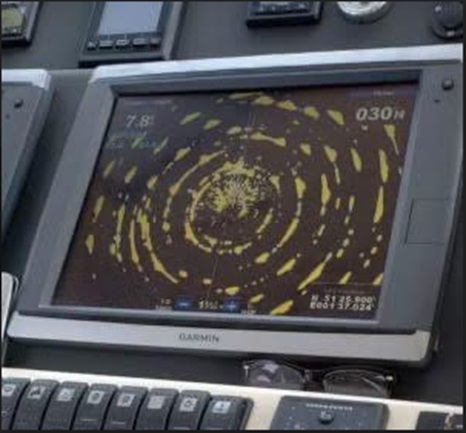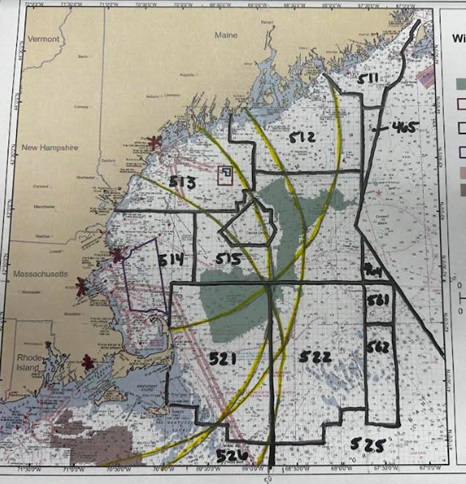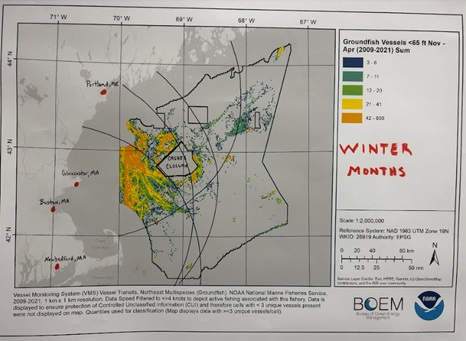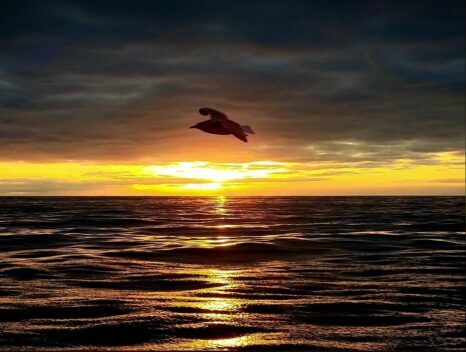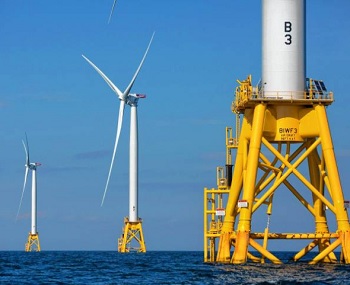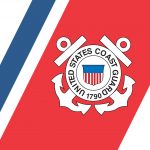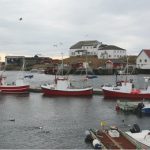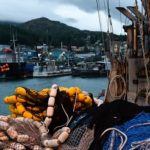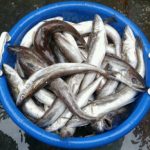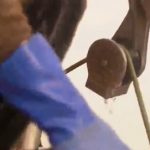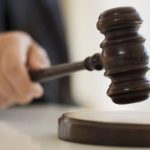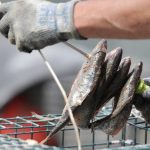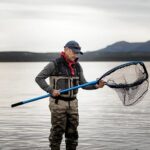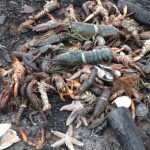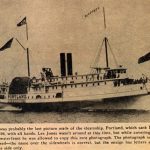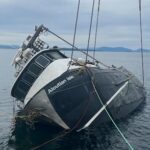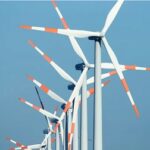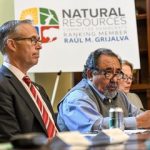Search Results for: Jerry Leeman
Opinion: Policymakers in search of sound science need to listen to fishery by Jerry Leeman
 Fishermen are gravely concerned that regulators are stealing our futures with baseless cuts to landing quotas. Rep. Jared Golden is taking positive steps to fix this problem. It often happens that government regulators, who lack deep knowledge of what it takes to catch fish in the Gulf of Maine, reach conclusions about the state of our fish stocks that do not match what fishermen are seeing and what we know from being on the water every day. The obvious objection whenever we raise this concern is that “anecdote is not the plural of data.” The doubters ask: Why would an individual fisherman know more than a government agency with a dataset? That’s a fair question. more, >>CLICK TO READ<< 08:02
Fishermen are gravely concerned that regulators are stealing our futures with baseless cuts to landing quotas. Rep. Jared Golden is taking positive steps to fix this problem. It often happens that government regulators, who lack deep knowledge of what it takes to catch fish in the Gulf of Maine, reach conclusions about the state of our fish stocks that do not match what fishermen are seeing and what we know from being on the water every day. The obvious objection whenever we raise this concern is that “anecdote is not the plural of data.” The doubters ask: Why would an individual fisherman know more than a government agency with a dataset? That’s a fair question. more, >>CLICK TO READ<< 08:02
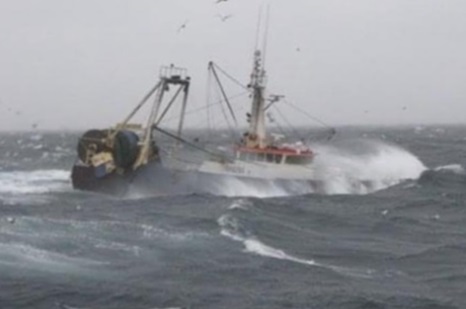
More things to worry about by Jerry Leeman
Wind energy in the Gulf of Maine is going to be a great challenge to all varieties of commercial and recreational fisheries. What disturbs me the most is, in all my travels along the coast in the four major fishing ports in New England, very few commercial fishing Captains were aware of the new talks on changing the management stock areas and the reallocation of codfish. This is a concern for many now that they are aware. This raises the question, if no Captain’s that fish inside the Wind Energy proposed areas were not aware of this future action, then how can the last comment periods on the proposed sights be accurately sighted? Charts graphs, more, >>click to read<< 13:16
More things to worry about by Jerry Leeman
 Wind energy in the Gulf of Maine is going to be a great challenge to all varieties of commercial and recreational fisheries. What disturbs me the most is, in all my travels along the coast in the four major fishing ports in New England, very few commercial fishing Captains were aware of the new talks on changing the management stock areas and the reallocation of codfish. This is a concern for many now that they are aware. This raises the question, if no Capatin’s that fish inside the Wind Energy proposed areas were not aware of this future action, then how can the last comment periods on the proposed sights be accurately sighted?
Wind energy in the Gulf of Maine is going to be a great challenge to all varieties of commercial and recreational fisheries. What disturbs me the most is, in all my travels along the coast in the four major fishing ports in New England, very few commercial fishing Captains were aware of the new talks on changing the management stock areas and the reallocation of codfish. This is a concern for many now that they are aware. This raises the question, if no Capatin’s that fish inside the Wind Energy proposed areas were not aware of this future action, then how can the last comment periods on the proposed sights be accurately sighted?
Changing broad stock area 521 off Cape Cod from Georges Bank quota allocation to Western Gulf of Maine allocation is a real issue. Imagine your permit’s catchable limits will be changed. Causing effort issues. Now add on the wind Energy Area east of Cape Cod will force pressure in the Wilkinson’s Basin and Murray Basin fishing grounds. This area is high in the abundance of choke species like Codfish, Gulf of Maine Haddock, and White Hake, which have been a big restraint to the fisheries efforts in these regions. Forcing effort into a concentrated area is never good for the effects of any resource. My rationale behind this argument comes from historical fishing footprints from data from VMS tracking years 2009-2021. NCCOS (National Centers for Coastal Ocean Science) showed the overlap of all vessel tracks in the Gulf of Maine and Georges Bank. While seeing all vessels overlapped on one chart it tells us nothing other than vessels have been in these areas. So, I had NCCOS take the same time frame and split the fleet from vessels under 65 feet and over 65 feet. Then asked them to split those fleets into seasons Winter months and Summer months through the same yearly time frame. These charts now show a story of effort patterns.
What was realized through these separated effort patterns is due to inclement weather conditions in the New England region, these charts show an effort pattern shift from vessels actively using the shoal and harder bottom effort in the Summer months to moving to deep water mud in the Winter months. When you have larger seas and inclement weather the chances of fouling up on the bottom pose a real danger to commercial trawlers due to hang-ups that could pose capsizing to vessels and crew safety.
Also, good to note looking specifically at the effort pattern of the vessels under 65 feet shows historically the fleet does not venture further than 100 nautical miles from any of the four major fishing ports in the New England region (Portland, ME. Gloucester, MA. Boston, MA. New Bedford, MA.). This being shown raises the question of access to historical fishing grounds. When looking at the current structure has broad stock areas 513, 514, and 515 which are currently the Gulf of Maine allocation areas for 3 species considered to be choke species due to allocation restraints. Changing this management structure including area 521 off of the Cape Cod region to become the Western Gulf of Maine area from the Georges Bank management area will force vessels further from shore outside their historical fishing grounds. Historically this analysis shows in the winter months, we have more concentrated effort in the Western region of the U.S. fishing grounds due to foul weather and quicker access to the fishing grounds amidst the ever-changing weather patterns. Accessibility is crucial for vital year-round fisheries. Without this access, it can be detrimental to holding fish markets specifically keeping a steady product supply. Once allocations are used up in this region it will force vessels out of the proposed Western Gulf of Maine regional area to transit offshore to further fishing grounds. Specifically, outside the 65 foot vessel’s historical fishing footprint to area 522. Area 522 lies outside the 100 nautical mile footprint of all the four major ports. This poses a severe safety risk to the vessels and crew’s safety and viable access to marketable fish stocks.
In easier terms, we will chew up fish allocations in the Western Gulf of Maine management area from concentrated efforts because of the Wind Energy proposed sites and force vessels to transit into furthermore dangerous waters. Transiting East to access George’s bank quota will have vessels transiting through Windmill sites that pose dangers from radar interference. Also should be noted that the US Coast Guard has no final analysis yet on how Search and Rescue will be able to effectively rescue vessels in danger inside these array areas due to radar interference as well.
These are the real concerns of the fleet and many in industry. We are forcing fishing efforts in a controlled area which forces vessels to transit East. Again the fishing Captains not knowing this issue brings the real question on the last Wind Energy Area comments as being incomplete. Knowing these shifts in area management and stock allocation change the entire dynamic of historical fishing footprints and accessibility to vital fish stocks. This will severely harm the survivability of the commercial trawling fleet. As well jeopardizing the future from keeping wild heart healthy product on the U.S. dinner table.
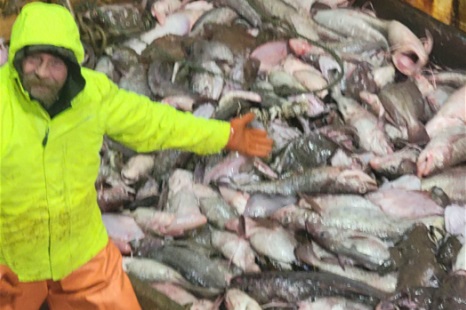
When things don’t add up. By Jerry Leeman
Sitting here towing along thinking back 20 years ago fishing in the Gulf of Maine. We used to land a lot of white hake. An average trip was always around 15k to 30k of hake 5k of monk tails on average. These days you worry of catching too many and you try to stay within the realm of your allowable catch because fish cost money to catch. Yes, even as crazy as that sounds boat quotas have been restricted from bad data collection to be so low, we have to purchase quota from other permits to maintain fishing. Then with these restrictions it puts a damper on markets. Imagine, markets that used to take in 200-500k of one specie a week then no longer are capable of taking in those fish because markets are not strong due to poor biomass data and allowable catches which have altered markets. >click to continue reading< 16:28
When things don’t add up. By Jerry Leeman
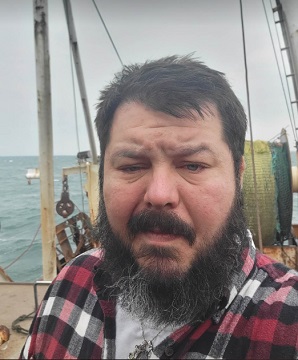 Sitting here towing along thinking back 20 years ago fishing in the Gulf of Maine. We used to land a lot of white hake. An average trip was always around 15k to 30k of hake 5k of monk tails on average. These days you worry of catching too many and you try to stay within the realm of your allowable catch because fish cost money to catch. Yes even as crazy as that sounds boats quotas have been restricted from bad data collection to be so low, we have to purchase quota from other permits to maintain fishing. Then with these restrictions it puts a damper on markets. Imagine, markets that used to take in 200-500k of one specie a week then no longer are capable of taking in those fish because markets are not strong due to poor biomass data and allowable catches which have altered markets.
Sitting here towing along thinking back 20 years ago fishing in the Gulf of Maine. We used to land a lot of white hake. An average trip was always around 15k to 30k of hake 5k of monk tails on average. These days you worry of catching too many and you try to stay within the realm of your allowable catch because fish cost money to catch. Yes even as crazy as that sounds boats quotas have been restricted from bad data collection to be so low, we have to purchase quota from other permits to maintain fishing. Then with these restrictions it puts a damper on markets. Imagine, markets that used to take in 200-500k of one specie a week then no longer are capable of taking in those fish because markets are not strong due to poor biomass data and allowable catches which have altered markets.
I’m towing through Wilkinson’s Basin here in the Gulf of Maine and I’m seeing more fish now than 20 years ago. 20 years ago I could stay right here and just fish the trip catching what we caught then landing. Now I can only make a handful of tows and have to move along away from these white hake and monks due to catch quota and fragile markets. If we land to many of one specie the price drops out and that’s the difference from making money and not. We pay a certain amount for fish to catch then depending on how many we land dictates whether you make that money back and enough to pay expenses and pay the crews. Everyone in the fleet is seeing more fish then we did 20 years ago.
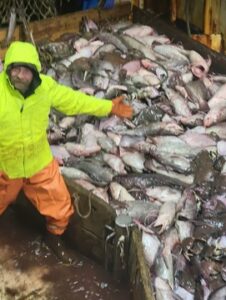 When I started fishing, I remember hearing stories of crews fishing in the Gulf of Maine having fist fights over who would be allowed to bring home the very few haddock that were caught. These days there are haddock everywhere you go. Then not only is there more haddock in the Gulf of Maine then any time before, but we are restricting the catches again on species of haddock and white hake based on no real data collected from a model and methods that are not sound.
When I started fishing, I remember hearing stories of crews fishing in the Gulf of Maine having fist fights over who would be allowed to bring home the very few haddock that were caught. These days there are haddock everywhere you go. Then not only is there more haddock in the Gulf of Maine then any time before, but we are restricting the catches again on species of haddock and white hake based on no real data collected from a model and methods that are not sound.
It’s taken me years to get decent at otter trawling to harvest fish from the sea. Now an individual who has spent time in a classroom is said to know more then we who spend our lives at sea. All I can say is they must of read a really good book to know what is in the sea especially when they’ve spent no time out here. During the pandemic of covid no research on biomass was conducted. Now prior to covid our government agencies said we had the greatest abundance of haddock ever in our life times. Then they walk it back with no data collected or time looking to an 84% reduction in allowable catch on haddock. This will make catching haddock in the Gulf of Maine worthless and restrict us from harvesting other species. You will have to buy quota to catch fish which will drop the price to the boats where the expenses and crew shares are not covered, forcing boats to either tie up or venture further out to sea compressing the fleet together into George’s banks areas.
Meanwhile, I don’t hear of Canada doing any cutbacks on their Gulf of Maine haddock quota. So, these fish freely swim across an imaginary line, and we are restricting 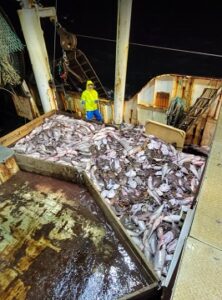 the US fishermen for no good reasons at all. Only things I’ve come up with is other nations taking the US markets from the US fleet and wind turbines taking control over the bottom. Our government will kill the US fishing fleet that has been in the decline for years due to bad policies and regulations that make no sense. Things just don’t add up. Well, they do but it’s not for the US fishermen and the US consumers.
the US fishermen for no good reasons at all. Only things I’ve come up with is other nations taking the US markets from the US fleet and wind turbines taking control over the bottom. Our government will kill the US fishing fleet that has been in the decline for years due to bad policies and regulations that make no sense. Things just don’t add up. Well, they do but it’s not for the US fishermen and the US consumers.
The public is being told the ocean is warming and the fish in our sea are being depleted, well from my 21 years at sea I can tell you whole heartedly that’s a lie. There are more fish now then when I started my career at sea. We have less boats and now we have a greying of the fleet, which means the age group is predominantly older with no new young blood to replace the aged fleet. We don’t allow new fishermen to obtain permits or quota to pursue a livelihood at sea. We no longer have training and government subsidies to help our fleet. Instead, we will strangle the fleet and restrict fishing activities for offshore development and others nations fisheries. This makes no sense at all we the US fishing fleet the most regulated and restricted fisheries in the world are being squeezed out but other nations with less restrictions and oversight are allowed to fish, how does that make any sense at all?
You, the US consumer are being peddled lies and told to eat tilapia and farm raised fish instead of wild caught from aquaculture farms. The tilapia is raised in fecal pools from other nations and the farm raised are fed antibiotics and food dye to color the meat while the natural healthy wild harvested food stocks are taken off your dinner plate by a bunch of bad data and manipulation from lobby groups and big business industrializing our oceans. The US consumer needs to wake up. What will happen to our nations food security when the men and women who harvest our oceans are no longer around?
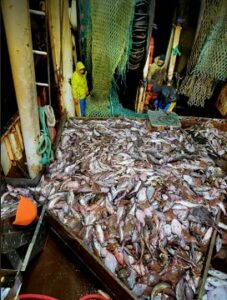 We will rely on other nations to feed our nation making us weak and having to comply due to a real possibility of starvation. We will be weakened as a country and our people and its communities that are built around our fisheries will suffer for it. This suffering will work its way inland thru broken commerce and destroyed communities. Our oceans resources will become in jeopardy from our ocean being industrialized.
We will rely on other nations to feed our nation making us weak and having to comply due to a real possibility of starvation. We will be weakened as a country and our people and its communities that are built around our fisheries will suffer for it. This suffering will work its way inland thru broken commerce and destroyed communities. Our oceans resources will become in jeopardy from our ocean being industrialized.
Our government hasn’t even done any long-term studies on biomass research through placing these turbines and thousands of mile of electrical cabling on our ocean’s floors. We could destroy our oceans resources that could feed our nation for generations to come. These actions are taking place in front of our noses but the powers that be are pushing it along anyways, because of campaign money and alliances with other nations and big money. We the people of the United States should not stand for this. We the men and women who harvest our oceans resources need to stand united and push back for the sake of our nation’s security and our resources and the livelihoods that have worked our oceans since the start of our nation. Many blessings to you all fish on my family and friends. Jerry Leeman
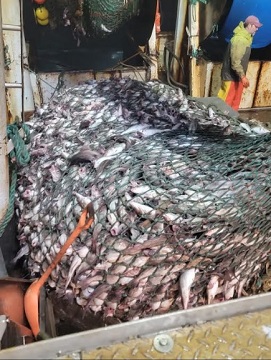
Jerry Leeman: So, let’s plug in what we know.
So, let’s run a logical thought, based on what our governments assumption on fish stocks is, with what we know. NOAA says there is nothing wrong with the biomass of white hake, but they cannot find adolescent hake. Well ask any lobstermen along the shorelines, they are seeing abundance of juvenile hake and cod in their traps. Imagine Lobstermen and inshore fishermen across a vast area all saying the same thing? NOAA says there’s nothing wrong with the biomass of haddock but same thing, they can’t find small fish. Well, what do we know?!! >click to continue reading< 08:33
Jerry Leeman: So, let’s plug in what we know.
So, let’s run a logical thought, based on what our governments assumption on fish stocks is, with what we know. NOAA says there is nothing wrong with the biomass of white hake, but they cannot find adolescent hake. Well ask any lobstermen along the shorelines, they are seeing abundance of juvenile hake and cod in their traps. Imagine Lobstermen and inshore fishermen across a vast area all saying the same thing?
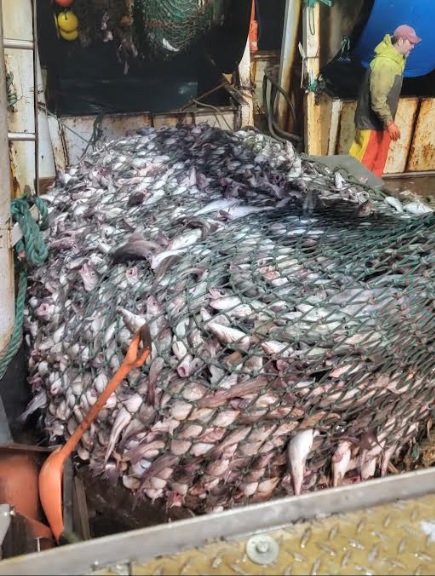 NOAA says there’s nothing wrong with the biomass of haddock but same thing, they can’t find small fish.
NOAA says there’s nothing wrong with the biomass of haddock but same thing, they can’t find small fish.
Well, what do we know?!! Their fall assessment only towed 40 nautical miles of bottom in a 36,000 square mile area in the Gulf of Maine. That’s literally nothing of any amount of data as they claim it’s the best available science. Millions have been spent to do little to no real bottom research that shows us a whole lot of anything. Now they would like an 80% reduction in allowable catch of haddock in the Gulf of Maine. I know the research is flawed but let’s just run with their screwy assessments for a hot minute. We know there’s research saying water temperatures are rising which is changing migration of fish species. Ok so water warms up, fish move to cooler water temperatures.
Now there is research that’s already been conducted on haddock out of Europe saying the magnetic pulse from the power running through those offshore wind farm cables, have a 60% mortality rate on juvenile fish. That’s a fact, the research has been conducted.
So, let’s plug in what we know. They claim there’s no juvenile haddock to be found so now you want to run power cables along the bottom where these fish stocks migrate, killing off 60% of the biomass of juvenile haddock you felt you needed an 80% reduction on because you couldn’t find small fish. Makes no sense at all. So you will not allow these fish to be harvested because you can’t find small juvenile haddock, but you’ll place cables that will kill them off by 60%. So how does that fit in the rebuilding of the stock?
Ding Ding Ding! it doesn’t rebuild the stock. Water temperatures rising means the fish will migrate to cooler water but placing these cables won’t allow these fish to migrate they’ll just stay and die off through disrupting their built-in migration compass. So, 80% reduction in haddock because no juvenile fish but 60% mortality rate for power cables which will kill juvenile fish which is proven detrimental to the species. Where does this make any sense? Answer is it doesn’t. It’s manipulation to push an agenda.
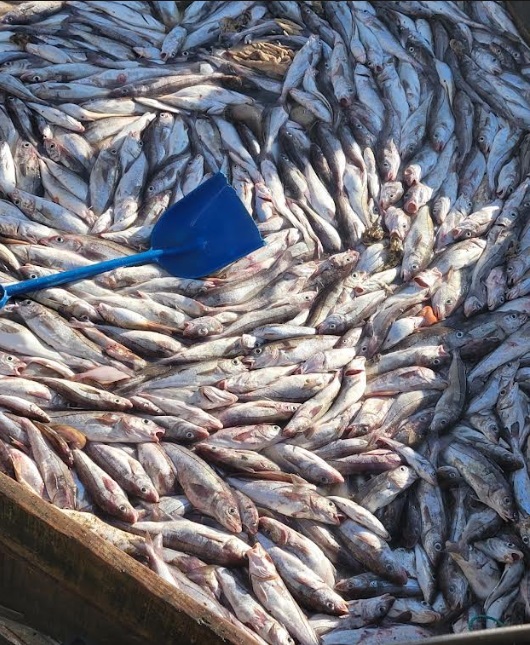 They’re using their assessments with real research already proven on juvenile haddock shows a huge conflict of interest. This will disrupt migration and breeding grounds to our natural resource for sustainable food to our nation and its people. 90% of seafood in the United States comes from other nations, funny because we have strict fishing laws here and 2 oceans on either side of our country and the Gulf of Mexico to the south, but we ship 90% of our seafood from other unregulated and overfished countries, but not our own.
They’re using their assessments with real research already proven on juvenile haddock shows a huge conflict of interest. This will disrupt migration and breeding grounds to our natural resource for sustainable food to our nation and its people. 90% of seafood in the United States comes from other nations, funny because we have strict fishing laws here and 2 oceans on either side of our country and the Gulf of Mexico to the south, but we ship 90% of our seafood from other unregulated and overfished countries, but not our own.
This manipulation has been taking place and the narratives being pushed onto our nation’s fishermen is a great injustice for all the care and stringent regulations placed upon our blue-collar working-class fishermen. Like I said if I agreed on their assessments which I don’t, by placing these cables would kill off our nations natural sustainable resource.
This cannot be allowed. I urge you to use your common sense in this matter and help against these false narratives being pushed by big money wind energy who’s corrupted our governments agencies and manipulated the narrative to push wind energy upon our seas, which will have real detrimental impacts for our nation and generations to come. Our own White House press conferences talk of food shortages, and they think destroying a natural sustainable food for big money wind energy is the way. You can’t eat electricity folks.
The economy along the New England seaboard is suffering from these false assessments and regulations being pushed from manipulated data and its corruption to the working-class men and women who harvest our ocean. How does one pay for wind energy when we have no income or jobs? How does one eat with no income or a food resource? Answer again is you don’t.
Whether you’re a fisherman or a land lover our ocean is under attack from money that does not know it’s true impact, other than to create more money for the shareholders. In the meantime, the people of this country will suffer its impacts from loss of food resources, and it will lose a heritage and a way of life for hundreds of thousands along the seaboards. It’s bad business all around.
I hope you pay close attention to this. This is not just the rambling of a fishermen trying to save his way of life, to hell with my job I say. They will kill the ocean and that’s not worth any job. Admirable as it sounds to stop the rising temperatures but detrimental to the people and the resources our people need and a way of life and its infastructure which provides jobs and community across all the sea boards. As always many blessings to you all. FISH ON MY FAMILY AND FRIENDS
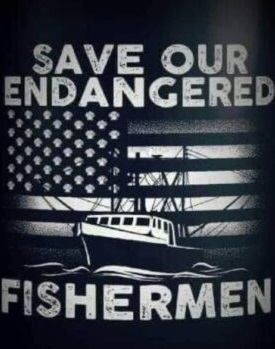
All for one and one for all – With Jerry Leeman
Well, if NOAA goes through with these cuts this coming year to groundfish stocks I’m afraid there won’t be a fishing season next year. They have created choke species thru faulty assessments. I don’t know why I say assessments because they really haven’t done enough to make any logical cuts to any stock. To my family and friends who are lobstermen. You will watch the bait prices double overnight once the last groundfish boat is done. No more bait will be landed thru the groundfish efforts. That’s right no redfish racks, no hard bait and no skates. This will happen. I’ll do my best to argue everyone’s circumstances and the errors of their data and sampling methods using on the job experience offshore for 14 years at sea in the last 21 years. The entire groundfish fleet Captains are united in this argument that the data is corrupt and wrong in many ways. All offshore fishermen spend more time trying to avoid fish due to the made-up choke species brought to us by bad science and lack of know how. >click to continue reading<, 15:03
All for one and one for all with Jerry Leeman
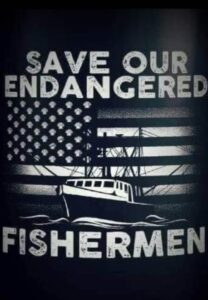 Well, if NOAA goes through with these cuts this coming year to groundfish stocks I’m afraid there won’t be a fishing season next year. They have created choke species thru faulty assessments. I don’t know why I say assessments because they really haven’t done enough to make any logical cuts to any stock. To my family and friends who are lobstermen. You will watch the bait prices double overnight once the last groundfish boat is done. No more bait will be landed thru the groundfish efforts. That’s right no redfish racks, no hard bait and no skates. This will happen.
Well, if NOAA goes through with these cuts this coming year to groundfish stocks I’m afraid there won’t be a fishing season next year. They have created choke species thru faulty assessments. I don’t know why I say assessments because they really haven’t done enough to make any logical cuts to any stock. To my family and friends who are lobstermen. You will watch the bait prices double overnight once the last groundfish boat is done. No more bait will be landed thru the groundfish efforts. That’s right no redfish racks, no hard bait and no skates. This will happen.
I’ll do my best to argue everyone’s circumstances and the errors of their data and sampling methods using on the job experience offshore for 14 years at sea in the last 21 years. The entire groundfish fleet Captains are united in this argument that the data is corrupt and wrong in many ways. Truth is there is nothing wrong with the fish stocks that are now in jeopardy from bad data.
All offshore fishermen spend more time trying to avoid fish due to the made-up choke species brought to us by bad science and lack of know how.
It’s all due to faulty assessments by a bunch of folks with nice degrees but no experience. To top it all off our government is allowing windmills in the Gulf of Maine. which will kill the fish stocks and do God knows what to your lobsters. They only made 1/12 of 1% of bottom fall survey tows in the Gulf of Maine and that warrants them to cut haddock and hake next year? What a joke.
They only managed to complete only 82% of the total fall survey. The entire survey only covered 306 miles of bottom for the entire 66 days from Virginia to the Gulf of Maine of towed bottom. While only around 10% of that, 82% was done in the Gulf of Maine.
Not to mention their survey never looks at the juvenile hake and codfish along the Maine coast or anywhere near where the windmills will be placed. NOAA bought a 54-million-dollar research boat to do the work and spent another 2 million dredging in front of their science building in Woods Hole, Massachusetts so they could dock their vessel up front and make it a tourist attraction. I guess the price of gas must’ve been too much to drive to a dock like everyone else, but you know it’s only the taxpayers’ money.
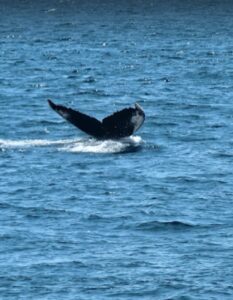 A basic groundfish boat in 10 days covers more bottom than they did in 66 days of research tows. 40 nautical miles total of bottom towed in the Gulf of Maine for 66 days of bottom surveys for this fall assessment. Like I said an average dragger tows 480 miles in a 10-day trip. So, we are basing our catch on what I would call no data at all. That’s right a dragger could tell you more in 10 days then a 54-million-dollar research vessel in 66 days.
A basic groundfish boat in 10 days covers more bottom than they did in 66 days of research tows. 40 nautical miles total of bottom towed in the Gulf of Maine for 66 days of bottom surveys for this fall assessment. Like I said an average dragger tows 480 miles in a 10-day trip. So, we are basing our catch on what I would call no data at all. That’s right a dragger could tell you more in 10 days then a 54-million-dollar research vessel in 66 days.
They’ll tell us it’s best available data. No sir you didn’t do anything, and your making cuts based on no data at all. Especially when you consider their assessments are based on 40 nautical miles of towing in an area that’s 36 thousand square miles that’s not including George’s banks area. That’s literally nothing.
All groundfish Captains efforts have been diverted due to faulty assessments we are trying to stay away from fish while catching enough fish to make a living! It’s crazy I tell you. The markets are collapsing because of supply problems from avoiding species and they think 40 nautical miles of towing in 36 thousand square mile area is enough evidence to justify any kind of cuts?
This is mismanagement and purposeful corruption against the working waterfronts of New England, and I urge everyone to get ahold of your representatives in every New England state and demand justice. It’s time to get loud about this. Our government has turned against we the people along the entire New England seaboard. We are about to be taken down systematically by a bunch of college degrees that haven’t done a thing with 60 million dollars but make guesses based on nothing then push for more cuts based on literally not enough data to make an epiphany with let alone any logical thought. This cannot stand.
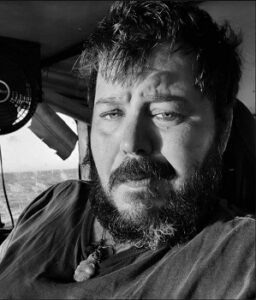 I plead for all fishermen, lobstermen, charter boats to unite and end this corrupt agency’s agenda pushing lunacy. NOAA and NMFS is making judgment calls on all of us on no basis at all. If they want to save the ocean, then why are they allowing windmills on our ocean. Studies have already been conducted showing the windmills drop the oxygenation of the water around the environment and the cables power running to shore will have a 60% mortality rate to juvenile fish and could stop breeding migration habits to all marine life from electromagnetic interference in the fish migration effecting groundfish and perhaps even tuna fish, while increasing marine traffic strikes to whales and killing sea birds in migration.
I plead for all fishermen, lobstermen, charter boats to unite and end this corrupt agency’s agenda pushing lunacy. NOAA and NMFS is making judgment calls on all of us on no basis at all. If they want to save the ocean, then why are they allowing windmills on our ocean. Studies have already been conducted showing the windmills drop the oxygenation of the water around the environment and the cables power running to shore will have a 60% mortality rate to juvenile fish and could stop breeding migration habits to all marine life from electromagnetic interference in the fish migration effecting groundfish and perhaps even tuna fish, while increasing marine traffic strikes to whales and killing sea birds in migration.
We must all unite before it is too late. We have all tried to overturn their rulings one at a time and have failed. It’s time to fight together as one. We are a fishing nation here in New England. It’s time to make a stand and fight this corruption which will have effects through all fisheries and generations to come. We can stop this together. I know we can. All for one and one for all. FISH ON MY FAMILY AND FRIENDS Jerry Leeman
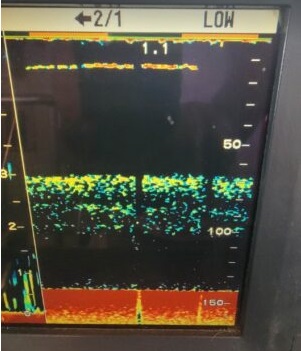
Jerry Leeman – Why it is wrong to assume anything
I’ll use this photo to prove a point. NOAA uses a computer to pick where their assessments on fish stocks will take place. Here lies the problem. It’s in random spots, and they never make the same tow again at the same time of the year because they use a computer model that knows nothing of fishing. NOAA is taking the assumption that fish live everywhere. That’s pretty funny because if you knew anything about fishing at all, fish species don’t hang on every piece of bottom all day and night. They just don’t. Not only do fish have tails, but they also swim up into the water columns and travel with the feed and breeding cycles and changes of the seasons. >click to read the rest< by Jerry Leeman.16:16
Jerry Leeman – Why it is wrong to assume anything
I’ll use this photo to prove a point. NOAA uses a computer to pick where their assessments on fish stocks will take place. Here lies the problem.
It’s in random spots, and they never make the same tow again at the same time of the year because they use a computer model that knows nothing of fishing. NOAA is taking the assumption that fish live everywhere. That’s pretty funny because if you knew anything about fishing at all, fish species don’t hang on every piece of bottom all day and night. They just don’t. Not only do fish have tails, but they also swim up into the water columns and travel with the feed and breeding cycles and changes of the seasons.
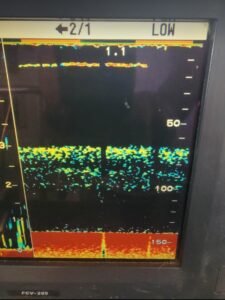 This picture represents 846′ of water or 141 fathoms under the boat. The fish schools are clearly there, I’ve circled them. Now, depending on the tide high or low slack water or daylight verses nighttime, the schools will come to bottom or go up in the water. Making a random tow for 20 minutes and moving on tells you nothing unless you stay the course in this area for at least 24 hours and even then, time of year and lunar cycles play a big part as well. These fish can come down to the bottom at any given time depending on what they are feeding on. Making a quick 20-minute random tow actually tells you nothing.
This picture represents 846′ of water or 141 fathoms under the boat. The fish schools are clearly there, I’ve circled them. Now, depending on the tide high or low slack water or daylight verses nighttime, the schools will come to bottom or go up in the water. Making a random tow for 20 minutes and moving on tells you nothing unless you stay the course in this area for at least 24 hours and even then, time of year and lunar cycles play a big part as well. These fish can come down to the bottom at any given time depending on what they are feeding on. Making a quick 20-minute random tow actually tells you nothing.
That type of knowledge comes with experience. NOAA uses this method to make assessments on stocks. Which after what I just explained, doesn’t make sense at all. It doesn’t work. Not only that they, don’t come back every year at the same time and make the same tow again, so how would you ever know if fish stocks were increasing or decreasing? They are literally making false assumption guesses and regulating on false assumptions while pushing corrupt agendas.
Remember, fish have tails and there is no written rule for fish having to stay along the bottom.
Twenty years ago, there were over 400 active fishing vessels in New England today, maybe seventeen. It’s not overfishing, folks, its corrupt data pushed by inexperienced science teams who I have no real problem with, but the management teams running this circus are corrupting the narratives with false information damning the working men and women who harvest our ocean. We could do real research with science teams and get much more accurate assessments on our fish stocks, but you need experience.
Meanwhile the data research ships make no effort to make any tows along the Maine coast. I’ve talked with many lobstermen and fishermen across New England, and I would be happy to talk with a lot more. Along the shore boats are seeing these small hake and codfish that if listening to NOAA do not exist or they can’t find them.
If you’ve been reading my posts, I have literally been spelling it out on a silver platter. But they won’t do the research or even look. Why would you suppose they’d not? Big green wind energy wants an offshore wind farm here in the Gulf of Maine and they want to run power cables that put off electrical magnetic pulses to the land.
Maines coast is a nursery for fish stocks, lobsters and clams and all varieties of marine life. You know, the fish they say are not there because of false and corrupt data. If you don’t know what you’re looking at it’s very easy to screw up an assessment. As I said before, NOAA wants to reduce haddock in the Gulf of Maine by 80% next year because they can’t find juvenile fish, but by placing these cables along the bottom you very well could wipe out entire fish stocks to never return and changing fish breeding cycles from small juvenile groundfish to tuna fish.
Not only that, increasing boat traffic will endanger the North Atlantic right whales from ship strikes. Meanwhile, killing the economy and way of life for thousands along the New England seaboard. Our politicians and the general public have been led astray from the real truth. It’s time to talk to the real men and women on the sea level and get real data with real knowledge plugged into the science.
 I’m willing to educate you with everything I’ve learned in my life on the water. All fishermen and lobstermen are here to help educate the masses and keep a sustainable ocean clean and harvestable for generations to come. This offshore wind farm green will destroy the Gulf of Maine and the men and women who respectfully harvest our greatest treasure. The sea is the bringer of life. It’s time to get on board reset the true heading and get this ship on course. Many blessings to you all. Please share people need to hear the real truths. FISH ON MY FAMILY AND FRIENDS, Jerry Leeman
I’m willing to educate you with everything I’ve learned in my life on the water. All fishermen and lobstermen are here to help educate the masses and keep a sustainable ocean clean and harvestable for generations to come. This offshore wind farm green will destroy the Gulf of Maine and the men and women who respectfully harvest our greatest treasure. The sea is the bringer of life. It’s time to get on board reset the true heading and get this ship on course. Many blessings to you all. Please share people need to hear the real truths. FISH ON MY FAMILY AND FRIENDS, Jerry Leeman
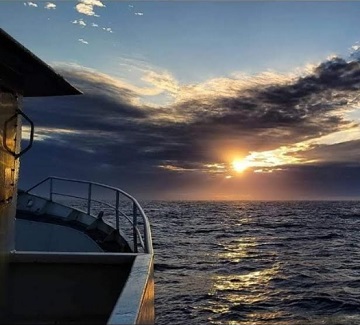
Jerry Leeman: Fishing is my life. Somewhere, people forgot to listen to the generations before us.
I’ve spent all my life on the ocean. My family and friends are fishermen and lobstermen. I grew up on an island in Maine and almost everyone was in some form of fishery, whether it be groundfishing, gill netting, seining and lobstering. We even had shrimping till that was mis managed away. I grew up watching these men and women harvesting the ocean. Rules were put into place to harvest the ocean responsibly and sustainably for future generations. Most people in this nation know little to as of why our fish stocks became depleted. Other nations like Russia and other European super trawlers were allowed to pillage our waters along the New England coast. They were eventually banned, but the destruction had been done. We’ve spent years restricting ourselves fishing, going out of our way bending backwards to rebuild our fish stocks. >click to read< By Jerry Leeman 11:19
Jerry Leeman: Fishing is my life. Somewhere, people forgot to listen to the generations before us.
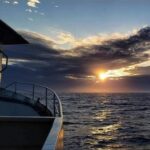 I’ve spent all my life on the ocean. My family and friends are fishermen and lobstermen. I grew up on an island in Maine and almost everyone was in some form of fishery, whether it be groundfishing, gill netting, seining and lobstering. We even had shrimping till that was mis managed away.
I’ve spent all my life on the ocean. My family and friends are fishermen and lobstermen. I grew up on an island in Maine and almost everyone was in some form of fishery, whether it be groundfishing, gill netting, seining and lobstering. We even had shrimping till that was mis managed away.
I grew up watching these men and women harvesting the ocean. Rules were put into place to harvest the ocean responsibly and sustainably for future generations. Most people in this nation know little to as of why our fish stocks became depleted.
Other nations like Russia and other European super trawlers were allowed to pillage our waters along the New England coast. They were eventually banned, but the destruction had been done.
We’ve spent years restricting ourselves fishing, going out of our way bending backwards to rebuild our fish stocks. Alot of fishermen couldn’t take the burden and hardships so they changed careers as the restrictions became too much for some to survive while others adapted to the regulatory environment. As the years have passed by less and less men and women became fishermen.
Here in New England, we have the Gulf of Maine and George’s Bank. Thousands of square miles of fishing grounds.
I have fished a good portion of it over many years, literally days at a time offshore with even fewer upon land. I’ve learned by observing the ocean and the men and women who came before me. I listened to them talk in the mornings before going out and the end of the day at the docks or the coffee houses. I paid attention to what they were doing when they worked on their gear. I was curious always asking why or how come. Then I watched where they set or towed their gear and watched as they shifted around and followed what they thought were the migration patterns of the specie in which they were harvesting. Every day I was their watching learning listening to what was said.
The knowledge these men and women had, was passed to them from the generations before who taught and explained their understanding of the ocean to the next. As the seasons changed so did the fishermen. This knowledge was accumulated through trial and error over generations. I’ve spent my younger years along the inshore waters. When I was 19, I started offshore groundfishing I had no clue what I was stepping into.
We fish around the clock with little to no sleep in all increments of weather. Could be sunny and 90′ or arctic cold where the sea freezes to the vessel. Winds and seas as big as multiple story buildings crashing down upon you, relentlessly testing your nerve. Many of the men and women today love the ocean, we are a part of it, it’s the life blood that feeds us and gives our lives purpose.
Somewhere people forgot to listen to the generations before us and the lessons that were taught. Fish migration and species habit is a very difficult thing to understand it takes years of observation to start to put the pieces together. What is the true meaning of knowledge the exact definition is: facts, information, and skills acquired by a person through experience or education and theoretical or practical understanding of a subject.
So why does our government agencies NOAA and NMFS never ask us individuals who have spent our lives harvesting our ocean every day, watching the changes learning the migration and all the theories passed down from generation to generation? It makes no sense at all.
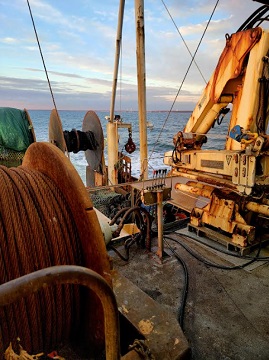 I have literally spent years at sea observing and tracking fish but no one from these agencies ever asked a question from me or any other fishermen. They place restrictions on us, and on species that aren’t even struggling by using their false assessments by folks with a degree but no real knowledge of our ocean. I’ve spent years at this, and I don’t have all the answers. Our ocean is still taking me to school and probably will till the day I die. I’ve accumulated this knowledge because I was passionate about it, loved the realness of it all and I fell in love with the sea.
I have literally spent years at sea observing and tracking fish but no one from these agencies ever asked a question from me or any other fishermen. They place restrictions on us, and on species that aren’t even struggling by using their false assessments by folks with a degree but no real knowledge of our ocean. I’ve spent years at this, and I don’t have all the answers. Our ocean is still taking me to school and probably will till the day I die. I’ve accumulated this knowledge because I was passionate about it, loved the realness of it all and I fell in love with the sea.
Now big green wind energy wants to wipe everything off the charts. They say this will save our planet and oceans fish and wildlife. I hate to tell you this.
NO IT WON’T.
Running these offshore wind farms will create tanker traffic which vessels of greater size have a higher risk of striking whales. The windmill folks give money to conservation groups now which are giving the lobstermen a hard time because of the risk of entanglement, but the management at NOAA think it’s fine to allow the windmills to kill 2 whales a year. I’m sorry that’s pretty stupid.
NOAA has a history of messing things up. Like I said they don’t ask the fishermen anything about what we see, or think is happening in our ocean. It’s their way or no way. So allow me to tell you what I’ve learned from my life on the New England seaboard and offshore waters from the Gulf of Maine and George’s banks.
Fish come along the shore to drop eggs and juveniles stay along the coasts till they’ve reached a maturity that warrants them to make the trek to deeper waters. There’s a reason you see schools of fish inshore and why the sharks follow. It’s all a part of the balance. The windmill farmers want to place the wind farms in the Gulf of Maine all the way to the Maine shores. The power running through those cables put off a magnetic field which if juvenile fish or small freshly hatched fish cross it can have a 60% death mortality as well as throw off their internal compass. The power in the cables could change the migration of fish and lobsters from along the shores stopping them from their breeding grounds and cycles.
So, what does that mean? Well, it’s real potential to kill the ocean which we are trying to save all in the name of trying to save it. It’s bad business for this nation and threatens all the species of our ocean. Imagine if green energy is allowed to kill whales and is allowed to screw up the migration and spawning grounds of all the fish species that use the Gulf of Maine in their breeding cycles? I tell you it’s bad bad bad.
Don’t even get me started on what it will do to all the fishermen and lobstermen of this nation who’ve given and risked their lives every day to produce sustainable seafood. Funny, two years ago most the fisheries were considered sustainable, well windmills have changed that now the narrative is no one is sustainable. Weird, fishing effort along the coast went down so that means less men and women harvesting and we became unsustainable while efforts have decreased. Doesn’t make any sense at all.
Only thing that changed was the narrative our politicians and this green wind energy giant has been force feeding the public on how good it is. Allow this fisherman to tell you. The hell it is! They are willing to allow the lives of two whales a year. They are allowing to run cables along the bottom with magnetic interference which could destroy the entire Gulf of Maines ecosystem and I mean wipe it out for generations to come.
Look all fishermen and lobstermen want to be green and have a clean ocean that’s sustainable but this is ocean suicide. The men and women with real experience and time who were raised from children to learn this with a passion are not even given a voice in any policy. The management at NOAA and NMFS has failed us for the sake of our government pushing a big money scheme, where do you think our politicians got their campaign money from. Everyone is being fed falsehoods about what is going on, while they are being quiet about the real impacts that will take place. I couldn’t imagine anyone wanting to kill our ocean until now. We must stop this madness before it is too late. As always many blessings to you all. FISH ON MY FAMILY AND FRIENDS
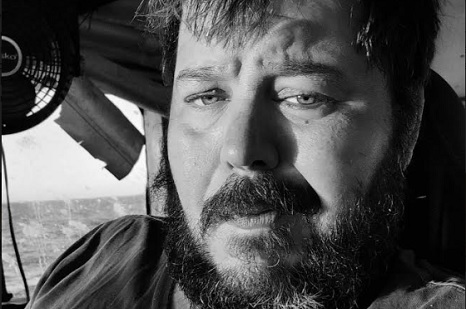
Well, the windmill agenda is damning us all. Fisherman Jerry Leeman
Well, the windmill agenda is damning us all. The evidence all points in the same direction from the standpoint of the sea. I’m a fisherman and have been all my life here in New England. I was raised on an island in Maine with a bunch of fishermen and fishing families. Everyone has their own style and way of harvesting the ocean. The unspoken truth is we all are for the betterment of the ocean, stewards of the sea by trade. That’s why we have management teams or supposed to which manage the stocks which the government and state control and not the actual harvesters. Here in New England, we are the most regulated fishermen in the world and that’s no lie. We have video tracking daily reporting and 100 % observer coverage. Your every move is being watched. All the fishermen are now switching their efforts and styles of groundfishing to fish without fishing is my best way to describe it. >click to read< 22:34
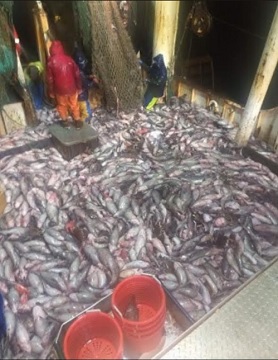
Jerry Leeman: 350 years of experience
15 captains showed up today in Gloucester, Mass., and their total experience together was over 350 years of knowledge. We discussed the white hake issue. They say the biomass isn’t the problem they’re just not seeing small hake. Well, fishermen don’t see small white hake very often due to us using 6.5″ diamond cod ends. The fish are small and slimy they slide right out the meshes. Hell, a medium pollock can swim out the mesh’s and they are twice to three times the size of small hake. Besides the point is a regulatory community that has never asked anyone in the room anything about fishing, have never asked what we were seeing, nor our thoughts about any species. Please >click to read the rest here< 10:27
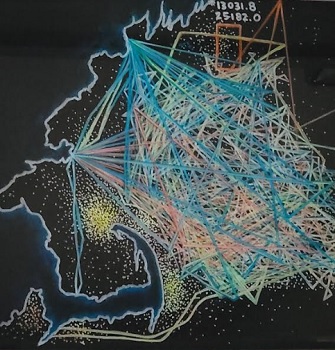
What’s wrong with the management?!! By Jerry Leeman
So, I’m using this piece of artwork, because I’m not driving 3 states away to pull up all my tracks. This is only a piece of artwork depicting a small percentage of the ground I’ve covered in the Gulf of Maine and George’s Bank. We all talk about the best science, while the best science is done when you have the best observations. That is the whole basis of science is study thru observations. How come a man like me who has over 14 years documented at sea in 21 years not have a voice in the management of our nation’s fishery? No one has ever asked me what I am seeing. They just hand me a piece of paper every time there’s a rule change. Then I figure out how I’m going to manage what little abundance they allot me. Please click to read the rest. >click to read< 15:07
What’s wrong with the management?!! By Jerry Leeman
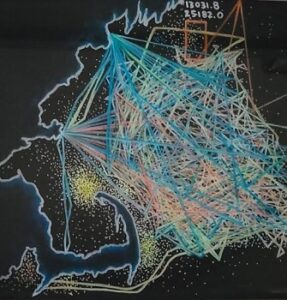 So, I’m using this piece of artwork, because I’m not driving 3 states away to pull up all my tracks. This is only a piece of artwork depicting a small percentage of the ground I’ve covered in the Gulf of Maine and George’s Bank.
So, I’m using this piece of artwork, because I’m not driving 3 states away to pull up all my tracks. This is only a piece of artwork depicting a small percentage of the ground I’ve covered in the Gulf of Maine and George’s Bank.
We all talk about the best science, while the best science is done when you have the best observations. That is the whole basis of science is study thru observations.
How come a man like me who has over 14 years documented at sea in 21 years not have a voice in the management of our nation’s fishery? No one has ever asked me what I am seeing. They just hand me a piece of paper every time there’s a rule change. Then I figure out how I’m going to manage what little abundance they allot me.
The experience I have is in no book that exists anywhere in the world. It can’t be taught in any classroom. My classroom has been the sea it’s my home, it’s the lifeblood that feeds our nation. I believe it’s an honorable profession. Imagine men and women who get up every day under their own will and harvest the ocean from the sweat of their brows and the strength of their backs. We are stewards of the sea.
Now we have a management team at NOAA and NMFS that say there is overfishing, and the stocks are depleted.
Allow me to tell you firsthand that, this is false. Their assessments are being done with folks who have a good-looking college education and theoretical knowledge. But when it comes to the sea those books will do you no good. It takes years to be good at something and a lifetime to master. Even as experienced as I am, I’m still learning.
But the management team never ask what men and women with this experience, anything. We are being managed by theory and not facts. Fact is I’ve talked with a lot of fishermen here in New England the best of their expertise and for the first time in the history of fishing, groundfishermen and lobstermen agree.
NOAA wants an 80% reduction in Gulf of Maine Haddock next year. Their reasoning is the stock is low so for the good of green they want a reduction. Now I showed an article explaining what offshore wind farm power cables could destroy the juvenile stock of fish. These same fish they are telling me are hurting but still want to go thru with these offshore wind farms. It doesn’t make any sense at all.
The best way to explain this is, if two people with the same education were heart surgeons one who has performed 2,000 surgeries verses the young man who has a degree and theoretical knowledge. Who would you choose to base real knowledge and trust to cut your heart out? You don’t need a degree to answer that question.
So why doesn’t the management ask the real fishermen anything?! Because they control the narrative and manipulate the fleet for the profiteering of government and state financing which is keeping them in the job while pushing the Blue-Collar American fishermen right the Hell into the poor house for no damn good reason.
This money come from green energy-based companies. Pushing their agenda to win the uneducated along with their green wind farm agenda which I just explained is a real problem and, with bias amongst their own assessments. None of this is adding up for we the people. It’s more special Interest while damning the many. Yes you, the hard-working self-employed men and women are thrown right into poverty.
I wish for you to hear this message and build a call to arms over this. It’s happening my friends.
Many blessings to you all. FISH ON MY FAMILY AND FRIENDS
Jerry Leeman, Commercial Fisherman
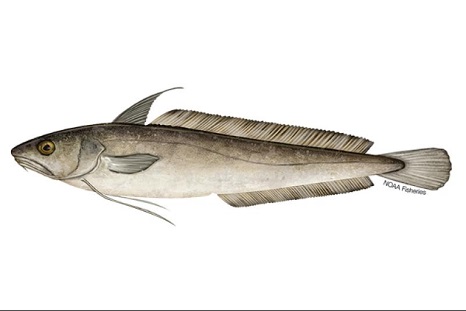
Jerry Leeman – A supply line disruption
Allow me to explain what is about to happen. We are fishing on false assumptions that there are no white hake. If you are a fisherman, I’m sure you can tell that is untrue. Regardless of the price of fuel rising and this hake quota brought to us by NOAA and NMFS. It’s become a supply line disruption. The infrastructure needs a steady supply of fish to keep steady markets open. Here lies the problem. Fishermen are going out of their way to avoid a specie that live in the same habitat as other species. So, for the sake of the hake restriction, they are avoiding those areas. So that means the supply line is cut for the other species. Which means cutting houses and fish markets are paying for folks to sit idle. No supply no product no income. So, they have to lay off folks. Please read the rest. >click to read< By Jerry Leeman 08:40
Jerry Leeman – A supply line disruption
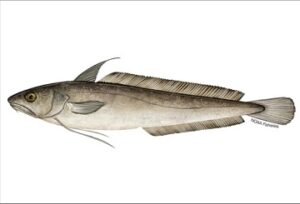 Allow me to explain what is about to happen. We are fishing on false assumptions that there are no white hake. If you are a fisherman, I’m sure you can tell that is untrue. Regardless of the price of fuel rising and this hake quota brought to us by NOAA and NMFS. It’s become a supply line disruption.
Allow me to explain what is about to happen. We are fishing on false assumptions that there are no white hake. If you are a fisherman, I’m sure you can tell that is untrue. Regardless of the price of fuel rising and this hake quota brought to us by NOAA and NMFS. It’s become a supply line disruption.
The infrastructure needs a steady supply of fish to keep steady markets open. Here lies the problem.
Fishermen are going out of their way to avoid a specie that live in the same habitat as other species. So, for the sake of the hake restriction, they are avoiding those areas. So that means the supply line is cut for the other species. Which means cutting houses and fish markets are paying for folks to sit idle. No supply no product no income. So, they have to lay off folks.
Then as our economy is so poor no one can afford a $14 a pound product. All due to there being no steady supply.
Now if we turned this around and were able to fish these stocks that would produce product to be distributed, jobs become full time while steady revenue is formed, the supply chain has markets. Fishermen can move their product at reasonable prices. In turn, the price at the grocery store goes down. Then the economy stays working.
If we stay with this faulty assumption on white hake, boats will be forced to stop. They’ll stop because the markets and facilities that processed their product and shipped to the consumer have gone out of business. So, what does that mean for lobstermen? Well, I’m sure if you are in the business, bait has been a burdensome task at $300-400 a barrel if you can get it!
Now imagine no more redfish racks. No more skates, and hard bait to boot.
How would $600-800 a barrel sound if you can find any at all?! Do you think you will manage to survive that. I bet not. My heart goes out to all.
This can be fixed and should be. We the fishermen, the ones at sea and on the ground floor can and should come together.
The infrastructure is a fragile thing that if collapsed will start a chain reaction. A trickle effect as it were. Millions of dollars in boats, structures, trucks no longer able to be paid for. Thousands of fishermen and men and women who’s livelihoods are gone. Then what?!
Well, that means joblessness, No income. Then starts the real scary and crazy part.
Folks will not be able to make payments. Homes will be lost. Bills will go unpaid insurances payments missed, boats sitting idle till the banks take them, the rest of the nation will follow suit. Think this won’t happen its already begun.
One hand wash’s the other especially in the fishing industry. How many fuel docks and shipyards base a living on the fishing industry? How many livelihoods are made by the equipment and mechanics and engineers not to mention secretaries and accountant’s jobs. We can fix this, but we need to come together and come together now.
Government has become big business not for the people by the people. Do you know that NOAA gets their budget from the tax of seafood coming across our nations border then takes that budget to manage you the men and women working our oceans right out of business. Funny other nations fish come to the United States to create a budget to put the US fishery in the poor house. I pray you take action.
God bless you all and our families as always. FISH ON MY FAMILY AND FRIENDS!
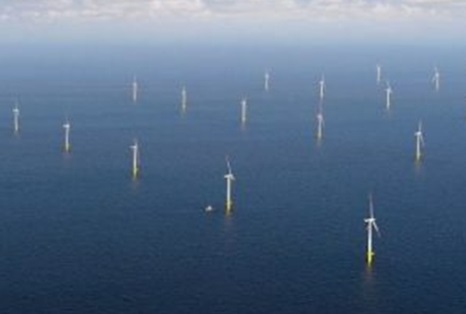
GOP Lawmakers, Fishermen Urge Trump to Keep Promise to Axe Offshore Wind
Trump’s return to the Oval Office may deal the problem-riddled offshore wind industry another blow if his administration follows through on his pledge to scrap federal support for offshore wind projects during his second term. Republican lawmakers, opposed to heavily subsidized green energy, and commercial fishermen, who view the industry as an existential threat to their livelihoods, are calling on the president-elect to follow through on his campaign’s promise, which could imply ending federal subsidies and lease sales for the industry. “The incoming administration has an historic opportunity to save American workers from foreign developers, reinvigorate iconic coastal towns, and improve America’s food security,” NEFSA CEO Jerry Leeman said in a press release following Trump’s election win. more, >>CLICK TO READ<< 06:54
Trump has vowed to kill US offshore wind projects. Will he succeed?
 Opponents of offshore wind energy projects expect President-elect Donald Trump to kill an industry he has vowed to end on the first day he returns to the White House. “I believe this is a tipping point for the offshore wind industry in America,” said Robin Shaffer, president of Protect Our Coast NJ, one of the most vocal groups opposing offshore wind on the East Coast. “They have been given a glidepath by Democrat-run administrations at the federal and state level for many years. For this industry, (Tuesday’s) results will bring headwinds far greater than they have faced previously.” Commercial fishermen in Maine said they hope the Trump administration will undo policies designed to help build and approve offshore wind projects, saying regulators attempted to “future-proof” the industry against political change. Jerry Leeman, CEO of the New England Fishermen’s Stewardship Association, called on Trump to reverse a commitment to deploy 30 gigawatts of offshore wind by 2030. more, >>CLICK TO READ<< 06:37
Opponents of offshore wind energy projects expect President-elect Donald Trump to kill an industry he has vowed to end on the first day he returns to the White House. “I believe this is a tipping point for the offshore wind industry in America,” said Robin Shaffer, president of Protect Our Coast NJ, one of the most vocal groups opposing offshore wind on the East Coast. “They have been given a glidepath by Democrat-run administrations at the federal and state level for many years. For this industry, (Tuesday’s) results will bring headwinds far greater than they have faced previously.” Commercial fishermen in Maine said they hope the Trump administration will undo policies designed to help build and approve offshore wind projects, saying regulators attempted to “future-proof” the industry against political change. Jerry Leeman, CEO of the New England Fishermen’s Stewardship Association, called on Trump to reverse a commitment to deploy 30 gigawatts of offshore wind by 2030. more, >>CLICK TO READ<< 06:37
Fishermen Fight Bureaucrats to Defend Their Way of Life
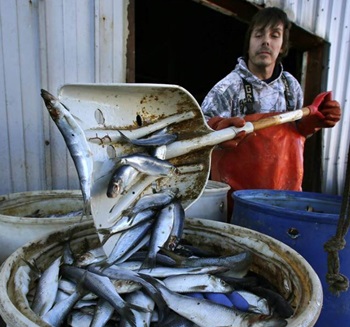 Fishermen are going to court in Portland, Maine, on Tuesday to protect their businesses and communities from an unconstitutional regulatory commission that is a menace to our iconic industry. Overregulation has taken the joy out of fishing, and the prosperity too. That inevitably follows when powerful bureaucrats aren’t accountable to anyone, as is the case with the unconstitutional regional management councils that set policy for our fisheries. America’s fishing fleet is steadily retracting. Fishing is a generational trade passed within families. Many fishermen I know are vectoring their sons and daughters away from the family business. There are many reasons for that, but overregulation is one of them. By Jerry Leeman. more, >>CLICK TO READ<< 13:21
Fishermen are going to court in Portland, Maine, on Tuesday to protect their businesses and communities from an unconstitutional regulatory commission that is a menace to our iconic industry. Overregulation has taken the joy out of fishing, and the prosperity too. That inevitably follows when powerful bureaucrats aren’t accountable to anyone, as is the case with the unconstitutional regional management councils that set policy for our fisheries. America’s fishing fleet is steadily retracting. Fishing is a generational trade passed within families. Many fishermen I know are vectoring their sons and daughters away from the family business. There are many reasons for that, but overregulation is one of them. By Jerry Leeman. more, >>CLICK TO READ<< 13:21
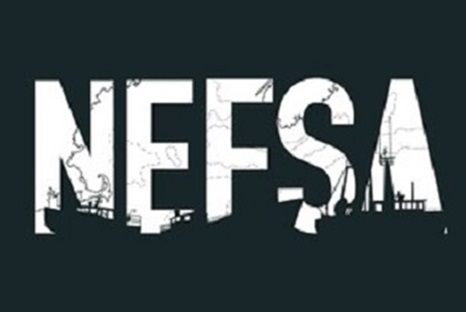
NEFSA Petition Urging Janet Mills to Halt Development of Offshore Wind in Gulf of Maine Receives Over 2,500 Signatures
The New England Fishermen’s Stewardship Association (NEFSA) will be sending Gov. Janet Mills a petition with over 2,500 signatures urging her to halt the development of offshore wind farms in the Gulf of Maine, according to a source close to the matter. NEFSA is a bipartisan nonprofit organization dedicated to helping save the region’s commercial fishing industry and preserving it for future generations. Signatories on the petition include commercial fishermen, as well as residents of New England maritime communities. In a copy of the petition’s letter obtained by the Maine Wire, NEFSA CEO Jerry Leeman urged Gov. Mills to follow in the footsteps of Oregon Gov. Tina Kotek (D) by asking the Bureau of Ocean Management (BOEM) to halt its efforts to lease property off the coast. more, >>CLICK TO READ<< 07:52
Against the Wind: Questions About BOEM’s Fisheries Analysis
 The Bureau of Ocean Energy Management (BOEM) announced the final sale notice for the Gulf of Maine offshore wind project lease areas on Sept. 16. The agency shrunk the overall area by 120,000 acres, removing significant portions of the two northern leases off the coast of Maine, carving a transit lane between the two farthest-offshore southern areas, and shaving small portions off other southern areas. This decision did little to satisfy Jerry Leeman, a Harpswell, Maine-based former commercial fisherman and founder of the New England Fishermen’s Stewardship Association (NEFSA), an organization that opposes the Gulf of Maine offshore wind area. NEFSA “remains steadfast in its opposition,” wrote Leeman in a press release, “despite the shrinking of the original areas.” more, >>CLICK TO READ<< 06:22
The Bureau of Ocean Energy Management (BOEM) announced the final sale notice for the Gulf of Maine offshore wind project lease areas on Sept. 16. The agency shrunk the overall area by 120,000 acres, removing significant portions of the two northern leases off the coast of Maine, carving a transit lane between the two farthest-offshore southern areas, and shaving small portions off other southern areas. This decision did little to satisfy Jerry Leeman, a Harpswell, Maine-based former commercial fisherman and founder of the New England Fishermen’s Stewardship Association (NEFSA), an organization that opposes the Gulf of Maine offshore wind area. NEFSA “remains steadfast in its opposition,” wrote Leeman in a press release, “despite the shrinking of the original areas.” more, >>CLICK TO READ<< 06:22
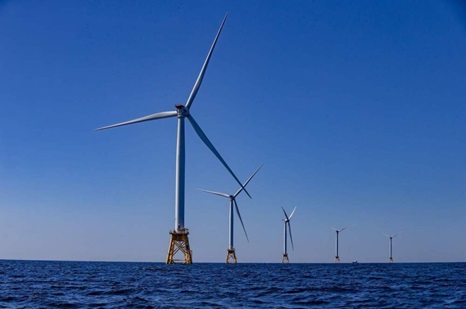
Mass. and Rhode Island pick 3 new wind projects, with less power than originally sought
Massachusetts and Rhode Island announced the winners of their joint offshore wind auction on Friday. While this total is less than half of what the states originally sought to procure, it helps bring them closer to their legally binding offshore wind targets. Friday’s news comes after nearly two years of economic tumult in the industry, when developers up and down  the East Coast canceled contracts for wind projects, saying they could not make them financially viable because of inflation, higher interest rates and supply chain problems. Still, not everyone is celebrating the news. Jerry Leeman, CEO of the New England Fishermen’s Stewardship Association, said he was “shocked” that the New England states are awarding more contracts less than two months after a blade broke off a Vineyard Wind Project turbine. In mid-July, the blade sent tons of fiberglass and foam debris into the ocean. Much of it washed up on the south side of Nantucket, and several beaches had to close while the material was cleaned up. more, >>CLICK TO READ<< 08:20
the East Coast canceled contracts for wind projects, saying they could not make them financially viable because of inflation, higher interest rates and supply chain problems. Still, not everyone is celebrating the news. Jerry Leeman, CEO of the New England Fishermen’s Stewardship Association, said he was “shocked” that the New England states are awarding more contracts less than two months after a blade broke off a Vineyard Wind Project turbine. In mid-July, the blade sent tons of fiberglass and foam debris into the ocean. Much of it washed up on the south side of Nantucket, and several beaches had to close while the material was cleaned up. more, >>CLICK TO READ<< 08:20
Fishermen Fight for Their Livelihoods Against Wind Farm Project in New England
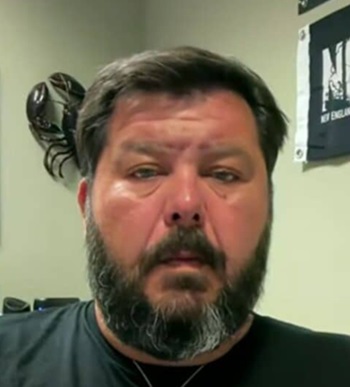 In a recent interview with Fox Business, Jerry Leeman, CEO of the New England Fishermen’s Stewardship Association, expressed his deep concerns about the impact of a wind farm project off the coast of Nantucket on the livelihoods of local fishermen. The discussion, hosted by Dagen McDowell and Sean Duffy on “The Bottom Line,” highlighted the growing tension between environmental initiatives and the preservation of traditional industries like fishing. Leeman opened the conversation by addressing what he described as “greenwashing,” a term used to suggest that the wind farm project is being marketed as environmentally friendly while ignoring the negative consequences. “We have been greenwashed into thinking this is a good idea,” Leeman stated. He explained that the construction and operation of wind turbines are displacing vital fish stocks and creating dangerous debris fields that could threaten the safety of fishermen. Photos, more, >>CLICK TO READ<< 14:50
In a recent interview with Fox Business, Jerry Leeman, CEO of the New England Fishermen’s Stewardship Association, expressed his deep concerns about the impact of a wind farm project off the coast of Nantucket on the livelihoods of local fishermen. The discussion, hosted by Dagen McDowell and Sean Duffy on “The Bottom Line,” highlighted the growing tension between environmental initiatives and the preservation of traditional industries like fishing. Leeman opened the conversation by addressing what he described as “greenwashing,” a term used to suggest that the wind farm project is being marketed as environmentally friendly while ignoring the negative consequences. “We have been greenwashed into thinking this is a good idea,” Leeman stated. He explained that the construction and operation of wind turbines are displacing vital fish stocks and creating dangerous debris fields that could threaten the safety of fishermen. Photos, more, >>CLICK TO READ<< 14:50
Fishermen organizing ‘flotilla’ protest against offshore wind
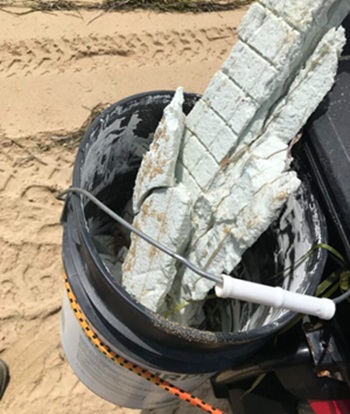 In response to recent concerns over offshore wind and with debris washing up on Nantucket and Island beaches from a fractured turbine blade, the New England Fisherman’s Stewardship Association (NEFSA) has organized a “flotilla” for this Sunday, bringing fishing boats together to peacefully protest in unison against the offshore wind industry. Boats will be joining together in a “boat parade” from various areas of the east coast, said NEFSA founder and CEO Jerry Leeman, including the Vineyard, Nantucket, parts of Massachusetts, Rhode Island and potentially New Jersey. more, >>CLICK TO READ<< 07:03
In response to recent concerns over offshore wind and with debris washing up on Nantucket and Island beaches from a fractured turbine blade, the New England Fisherman’s Stewardship Association (NEFSA) has organized a “flotilla” for this Sunday, bringing fishing boats together to peacefully protest in unison against the offshore wind industry. Boats will be joining together in a “boat parade” from various areas of the east coast, said NEFSA founder and CEO Jerry Leeman, including the Vineyard, Nantucket, parts of Massachusetts, Rhode Island and potentially New Jersey. more, >>CLICK TO READ<< 07:03
Fishermen Join Lawsuit Against Vineyard Wind After Blade Failure
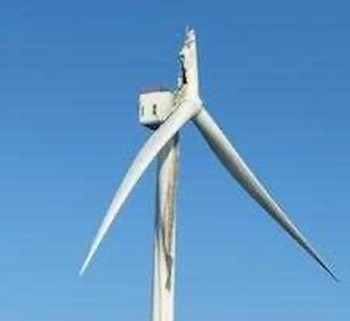 The New England Fishermen’s Stewardship Association (NEFSA) has called for the First U.S. Circuit Court of Appeals to reconsider the dismissal of a lawsuit against the Department of the Interior regarding the safety of Vineyard Wind’s turbines. The case, RODA v. Department of the Interior, is scheduled for oral arguments on Thursday. Jerry Leeman, CEO of NEFSA, highlighted recent issues related to the Vineyard Wind project, particularly a blade malfunction that resulted in debris being scattered across important fishing areas. “The Responsible Offshore Development Alliance (RODA) put the government on notice over two years ago that Vineyard Wind’s turbines aren’t safe. The recent blade disaster has scattered debris over a huge swath of historic fishing grounds, creating serious hazards for mariners and marine life,” Leeman stated. more, >>CLICK TO READ<< 07:59
The New England Fishermen’s Stewardship Association (NEFSA) has called for the First U.S. Circuit Court of Appeals to reconsider the dismissal of a lawsuit against the Department of the Interior regarding the safety of Vineyard Wind’s turbines. The case, RODA v. Department of the Interior, is scheduled for oral arguments on Thursday. Jerry Leeman, CEO of NEFSA, highlighted recent issues related to the Vineyard Wind project, particularly a blade malfunction that resulted in debris being scattered across important fishing areas. “The Responsible Offshore Development Alliance (RODA) put the government on notice over two years ago that Vineyard Wind’s turbines aren’t safe. The recent blade disaster has scattered debris over a huge swath of historic fishing grounds, creating serious hazards for mariners and marine life,” Leeman stated. more, >>CLICK TO READ<< 07:59
A fishing conglomerate created a fake company to facilitate a merger. It could now be on the hook for billions of dollars.
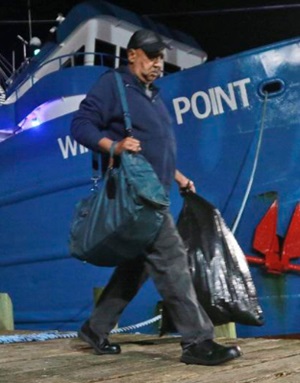 Commercial fishers are one of the professions that’s been nickeled-and-dimed in recent decades, right up there with long-haul truckers and chicken farmers. In New Bedford, Massachusetts, the most lucrative port for seafood catches in the country, a fisherman profiled by ProPublica in 2022 was forced to contract with one of the world’s seafood powerhouses, Blue Harvest, because it had become the only buyer in the local market. Per the contract, fishers have to lease fishing permits from the company; the costs for vessel maintenance, fuel, gear, and repairs on company-owned boats are taken out from fishers’ own paychecks, called settlement sheets. After fishing around the clock for ten days to meet quotas, Jerry Leeman only made 14 cents on the pound and his crew 7 cents, even as their haddock catch sold for $2.28 per pound at market. Blue Harvest took the lion’s share of earnings, while placing all the risks of the trade onto fishers. “Tell me how I can catch 50,000 pounds of fish yet I don’t know what my kids are going to have for dinner,” more, >>CLICK TO READ<< 07:59
Commercial fishers are one of the professions that’s been nickeled-and-dimed in recent decades, right up there with long-haul truckers and chicken farmers. In New Bedford, Massachusetts, the most lucrative port for seafood catches in the country, a fisherman profiled by ProPublica in 2022 was forced to contract with one of the world’s seafood powerhouses, Blue Harvest, because it had become the only buyer in the local market. Per the contract, fishers have to lease fishing permits from the company; the costs for vessel maintenance, fuel, gear, and repairs on company-owned boats are taken out from fishers’ own paychecks, called settlement sheets. After fishing around the clock for ten days to meet quotas, Jerry Leeman only made 14 cents on the pound and his crew 7 cents, even as their haddock catch sold for $2.28 per pound at market. Blue Harvest took the lion’s share of earnings, while placing all the risks of the trade onto fishers. “Tell me how I can catch 50,000 pounds of fish yet I don’t know what my kids are going to have for dinner,” more, >>CLICK TO READ<< 07:59






